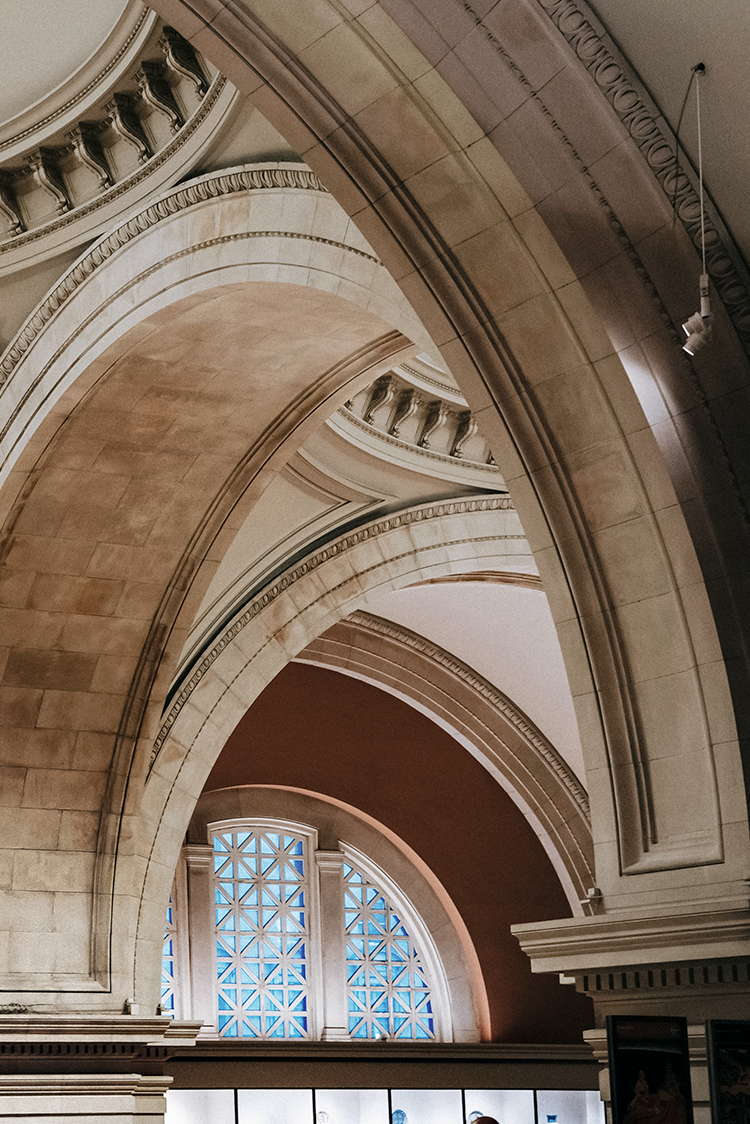
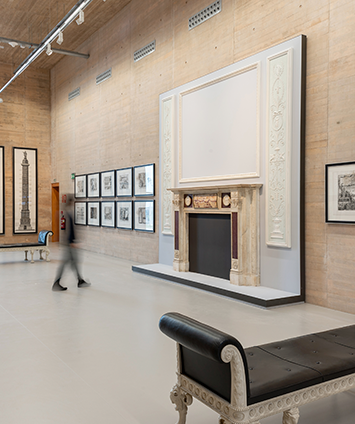
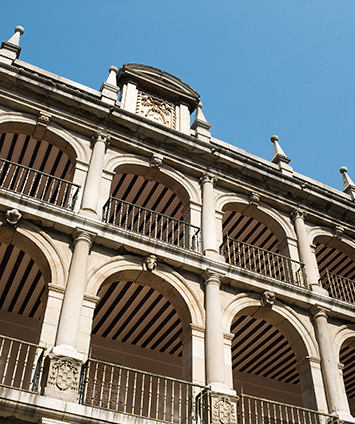
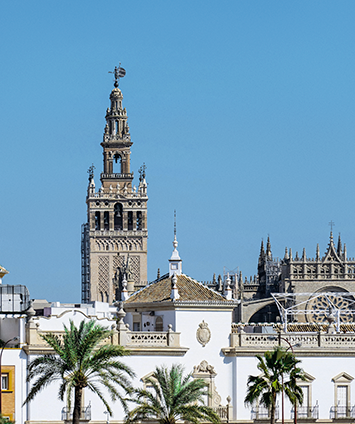



Colección Biografías de Historia Fundamental
In 2024, the foundation launched a new book collection that aims to shine a spotlight on figures from the history of Spain and Ibero-America who lived between the fifteenth and nineteenth centuries, particularly people who have been forgotten by the public or systematically ignored by historians.
In each volume, an expert will present the conclusions of their research, along with illustrations and documents to situate the subject in his or her context.
The collection is also published in e-book format and complemented by a podcast that includes dramatisations based on the texts and interviews with the historians. The recordings are available free of charge on the main audio streaming platforms and the foundation’s website.
María José Rubio
The opening volume of the collection was dedicated to the third wife of Ferdinand VII, Maria Josepha Amalia of Saxony, the first constitutional queen and the only member of the Spanish monarchy who was also a writer.
In the queen’s first biography, the historian María José Rubio debunks certain myths about her life and reveals unknown aspects of her literary work, such as her reflections on the turbulent political events of her reign that marked the course of nineteenth-century Spanish history.
The QR code that comes with the book leads to an interview with the author and a podcast dramatisation of selected passages.
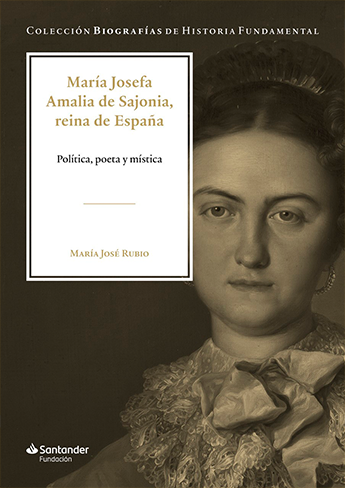

Banco Santander Historical Archives
The foundation has partnered with Fundación UCEIF (University of Cantabria Foundation for the Study and Research of the Financial Sector) to manage and administer the historical archives of Banco Santander.
These archives are a vital source of information for understanding and studying Spain’s economic history and financial system. They consist of documents and books owned by Banco Santander and other financial institutions that have been absorbed into what is now Grupo Santander, a collection of banking artefacts (1879–2011), and another of stock and bond certificates and other bank documents (1863–1976).
Fundación Banco Santander oversees all activities related to the conservation, research, digitisation, cataloguing and public dissemination of this valuable documentary heritage.
The building that houses the archives also includes a space dedicated to works in the Banco Santander Collection by the eighteenth-century architect and engraver Giovanni Battista Piranesi.

Biografías e Historia
The Biografías e Historia series, organised by Fundación Banco Santander and Asociación Cultural de la Nobleza Española, analyses historical events through the lives of people who played a leading role in them.
In 2024 the series was dedicated to Francisco Jiménez de Cisneros, a pivotal figure in Spanish history who marked the transition from the Middle Ages to the early modern era.
Historians Carmen Iglesias, Teresa Jiménez Calvente, Sergio Ramiro Ramírez and Jaime Olmedo Ramos discussed his various facets: cardinal and archbishop of Toledo, inquisitor general, benefactor and political regent.
The lectures were held in the assembly hall of the National Historical Archives from 7 to 28 May, and recordings of them (and of past editions) are available on the foundation’s YouTube channel.

Hispania Nostra Awards
Each year, Fundación Banco Santander and the association Hispania Nostra present awards to acknowledge best practices in the conservation and defence of Spain’s cultural and natural heritage.
There are three prize categories: Land or Landscape Intervention; Conservation of Heritage as a Factor of Socio-Economic Development; and Cultural and Natural Heritage Signage and Publicity.
In 2024, the initiatives selected by the jury in each category were, in the same order: the renovation of a sixteenth-century flour mill and its environs in San Miguel de Corneja, Ávila; the restoration, research and documentation of the facades of the Giralda tower in Seville; and the publication of two books about industrial heritage by the INCUNA association to celebrate its 25th anniversary.
On 1 October, Antón Costas, president of Spain’s Social and Economic Council, defended the need for a democratic economic policy in a social context fraught with uncertainty.
Jonas Fernández, economist and coordinator of the Group of the Progressive Alliance of Socialists and Democrats in the European Parliament, spoke about Spain’s influence in the European Union on 15 November.
Finally, the social perception and truth of the migration phenomenon was the topic addressed by Sara de la Rica, full professor of Economics, in the session on 28 November.

La Colección de Ideas
Fundación Banco Santander created this “idea lab” to reflect and exchange proposals on current issues. At each of the eight sessions held over the course of 2024, the topic was introduced by a speaker and subsequently discussed by several experts.
On 8 January, Miguel Gil Tertre, chief economist of the European Commission’s Directorate General for Energy, introduced a debate about the relationship between energy and geopolitics.
Helena Viñes, commissioner of the Spanish Financial Markets Authority (CNMV), discussed the future of the European Green Deal on 17 January.
On 12 March, Álex Romero, CEO and founder of Alto Intelligence, kicked off a discussion of the hybrid threats that aim to weaken states through disinformation.
At the session held on 21 May, renowned news professionals analysed journalism’s role in relation to public opinion.
José García Montalvo, researcher and full professor of Applied Economics, examined the main challenges of providing access to housing on 13 June.

Partnerships
Fundación Banco Santander was a sponsor of this event organised by Fundación Obra Pía de los Pizarro in partnership with Spain’s Royal Academy of History.
At the congress, held on 4 October at the Barrantes-Cervantes Palace in Trujillo, Cáceres, and inaugurated by King Felipe VI, representatives of history academies in Spain and Hispanic America came together to strengthen ties and share different perspectives on their common past.
The final session was a round table discussion among several Trujillo congress attendees, held on 7 October at Casa de América.
Fundación Banco Santander sponsored a course titled “Intervenciones sobre edificios existentes”, led by architect Antonio Ortiz, at the Menéndez Pelayo International University.
Between 2 and 4 September, architecture professionals gathered to discuss the significance and scope of architectural renovations, specifically in connection with the bank’s remodel of two buildings in Santander: the regional head office in Calle Hernán Cortés, and the former main headquarters in Paseo de Pereda.
Fundación Banco Santander sits on the Board of Protectors of this institution devoted to preserving, researching and publicising the cultural and historical heritage of the city of Toledo. To this end, it organises exhibitions, urban planning initiatives, heritage restorations, workshops, lectures, concerts and other activities.
The foundation’s headquarters on Roca Tarpeya also house the Museo Victorio Macho and Espacio Rafael Canogar, where the work of these two artists from Toledo is on public display.

